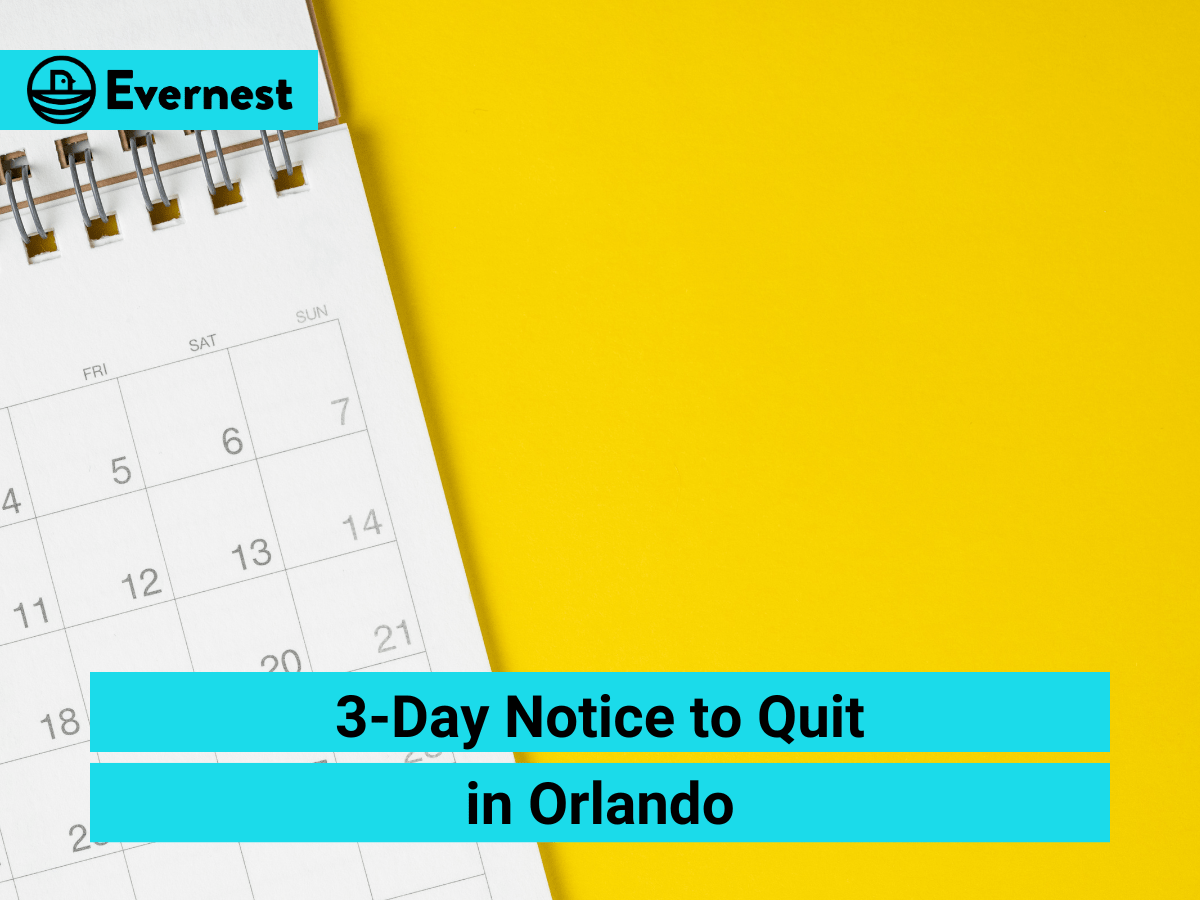The property rental business runs on complete and timely rental payments. When a tenant fails to pay their rent, landlords need to understand what tools are available to them in order to handle the situation. As a landlord in Orlando, the tool you need to be familiar with is the 3-Day Notice to Quit.
In this article, we will explore what a 3-Day Notice to Quit is, the process of serving it, and the rights and responsibilities of both landlords and residents involved in the eviction process.
What is a 3-Day Notice to Quit?
A 3-Day Notice to Quit is a legal document that a landlord serves to a tenant to notify them that they have violated the terms of their lease agreement by failing to pay rent and have three days to either correct the violation or vacate the premises. If the tenant does not comply with the notice, the landlord may then proceed to file an eviction lawsuit.
In the state of Florida, the 3-Day Notice to Quit is issued specifically for nonpayment of rent. Other types of lease violations require a seven day notice period according to state law. Generally speaking, first time or less serious violations call for the issuance of a 7-Day Notice to Cure, giving the tenant seven days to remedy the situation. Ongoing, repeated, or severe lease violations can warrant a 7-Day Unconditional Quit Notice, which means that the situation is beyond repair and that the tenant must move out within seven days or face further legal action.
It is always a good idea to consult an attorney regarding these matters to ensure that you are serving the right notice and that any eviction procedures that may follow are lawful and enforceable.
The Process of Serving a 3-Day Notice to Quit
When drafting the notice, it is important to adhere to the proper format and to include specific information such as the reason for the eviction, the date the notice was served, and the deadline by which the tenant must either pay or vacate the premises. Providing clear and detailed information in the notice can help avoid misunderstandings and potential legal disputes.
Once you have drafted the notice, you can proceed with serving the 3-Day Notice to Quit to the tenant. In Orlando, Florida, the notice must be sent by certified mail, served in person to the tenant or conspicuously posted on the door of the rental unit. It is essential to adhere to the proper methods of service to ensure the validity of the notice.
After serving the notice it’s a good idea to maintain meticulous records of all communication and documentation related to the eviction process. These records may serve as crucial evidence in the event that the tenant challenges the eviction in court. Keeping detailed records demonstrates procedural compliance and can bolster your case during legal proceedings.
Resident Rights and Responsibilities
Under Florida law, tenants have the right to receive proper notice of eviction and to be provided a reasonable opportunity to correct any lease violations. They also have the right to contest the eviction in court if they believe it is unjust or they have been wrongfully served the notice.
However, tenants also have responsibilities. They are expected to fulfill the terms of their lease agreement, which includes paying rent on time, maintaining the property, and following any rules set forth by the landlord. Failure to do so justifies the landlord pursuing a formal eviction.
Landlord Rights and Responsibilities
Landlords have the right to receive rent payments on time and to have their property respected and maintained. They also have the right to evict a tenant who has violated the terms of their lease.
As for responsibilities, landlords must ensure that they are serving the notice correctly and providing the tenant with the opportunity to correct any violations. They must also follow the proper legal procedures and respect the tenant's rights throughout the eviction process.
Final Thoughts: 3-Day Notice to Quit in Orlando
Understanding the 3-Day Notice to Quit is crucial for landlords in Orlando. By familiarizing yourself with the process of serving the notice, as well as the rights and responsibilities of both landlords and tenants, you can navigate the eviction process confidently and effectively.
Remember to consult with legal professionals when necessary to ensure that you are following all applicable laws and regulations. By doing so, you can protect your interests as a landlord while also respecting the rights of your tenants.
Looking for a property management company in Orlando to help with eviction notices and other tenant related issues? Reach out to our local team to hear about our services and find out how we can benefit your rental business!


